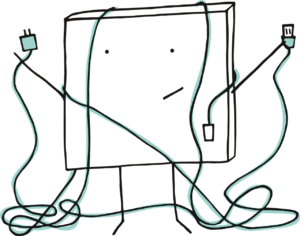Failure usually isn’t (what we think it is)

“It was a complete failure. All the time: wasted. Everything I tried: wrong. Now I’m doubting everything I do.”
Statements that, unfortunately, sometimes happen in a business environment.
When I heard this one I took issue with, well, all of it.
Something had indeed gone wrong. But no time had been wasted and I didn’t see failure anyway.
It’s a little bit like pouring water: have you ever spilled water as you are pouring it? Does that mean you are a failure at pouring water and should never try again?
(Hint: the correct answer is No).
Let’s look at what had happened in this example, and this distortion of the word “failure”.
The failure event
My client’s business had spent several months putting together a large sales proposal for a prospect, which we will call Acme.
Their expectations were high, everything had seemed to be going well.
And then the end client turned down the proposal.
Hence: failure.
The actual story
But let’s look at what actually happened.
- Acme could have called anybody, any other business that offers what my client offers. And they chose my client. That’s a success.
- Acme had a particular need that would require some customization, and my client was able to adapt their services to meet that need, without compromising the cost or quality. That’s a success.
- My client provided a use case and proposal that his Acme contact could present to his colleagues to show Acme in a good light. That’s a success.
- Everybody at Acme saw the benefit of using my client’s company and was impressed with the experience they had over those few months. That’s a success.
So what happened?

A spending freeze, due to uncertainty around COVID aftermath and concerns about supply chains.
Nothing whatsoever to do with my client or with the project in hand. It was simply a company-wide policy that everybody had to follow, like it or not.
The success event
It’s true: the deal did not go through.
If that is my client’s only measurement of success, then perhaps they could deem it a failure.
But they would have learned nothing from the experience. And they would be ignoring a lot of successful work.
My client was successful all the way through, and even if they had lost the project due to price or scope, the other elements in the process would still have been a success.
It’s just work
The truth is that we win some, and we lose some. Sometimes because of something we did, and sometimes because of something outside of our control.
Neither scenario is all success or all failure.
Both scenarios can teach us something to improve next time.
And we continue to go through our days and, when we have to, dust ourselves off and try again.
What next
To celebrate what went well and correct what can be improved, you must understand your process. That is the only way to zoom in and find those minute areas that need correction. Contact me for a half-hour call on your current process and what might be missing.